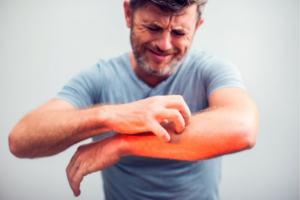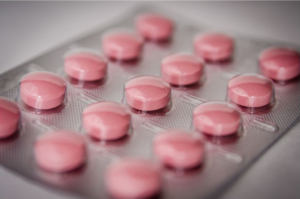General queries:
info@woodstockroadchemist.comNHS prescription queries:
woodstockrd.chemist@nhs.netGeneral queries:
info@woodstockroadchemist.comNHS prescription queries:
woodstockrd.chemist@nhs.netWhen you’re traveling to areas where malaria is still a big concern, it’s crucial to have the right information and take proactive steps to protect yourself. This guide is designed to give you practical tips and valuable insights on how to defend against malaria.

Malaria is a serious disease caused by parasites that get into your body through mosquito bites. These little parasites belong to a group called Plasmodium. When a mosquito that’s infected with these parasites bites you, it injects them into your bloodstream.
Once those parasites are inside you, they travel to your liver and start growing and multiplying. Then they move on to infect your red blood cells, which causes them to burst open. This releases even more parasites into your bloodstream. And this whole cycle just keeps going, which is why you end up with symptoms like fever, chills, headache, muscle aches, and feeling totally wiped out.
It’s really important to be able to recognize the symptoms of malaria, because catching it early and getting treatment right away can make a big difference. Even better is to follow strategies below to prevent this from occurring in the first place.

1. Use Mosquito Repellents
Apply repellents containing DEET, picaridin, or oil of lemon eucalyptus to exposed skin and clothing to deter mosquito bites, especially during dawn and dusk.
2. Wear Protective Clothing
Cover up with long-sleeved shirts, long pants, socks, and closed-toe shoes, preferably in light colors, to create a physical barrier against mosquitoes.
3. Sleep Under Bed Nets
Use insecticide-treated bed nets while sleeping to prevent nighttime mosquito bites and reduce the risk of malaria transmission.
4. Eliminate Breeding Sites
Remove standing water from containers, clean gutters, and avoid leaving items outside that can collect water to reduce mosquito breeding sites.
5. Indoor Spraying
Apply insecticides indoors to target resting mosquitoes and reduce malaria transmission, particularly in high-risk areas.

Consult a healthcare provider before traveling to malaria-endemic areas and take antimalarial medications for additional protection against infection.
For the purpose of preventing malaria we recommend Malarone (Atovaquone and Proguanil) as it is well tolerated by most people.
Malarone comes in two forms Malarone and Malarone Paediatric
Malarone (Suitable for Adults and children over 40kg)
The recommended usual dose for adults is 1 tablet once a day, taken as below.
To prevent malaria in adults: start taking Malarone 1 to 2 days before travelling to an area which has malaria continue taking it every day during your stay continue taking it for another 7 days after your return to a malaria-free area
Malarone Paediatric (Suitable for adults and children under 40kg)
The recommended dose to prevent malaria depends on your child’s weight.
11-20 kg – 1 tablet once a day
21-30 kg – 2 tablets once a day (as a single dose)
31-40 kg – 3 tablets once a day (as a single dose)
Start giving Malarone Paediatric 1 to 2 days before travelling to an area which has malaria Continue giving it every day during the stay Continue giving it for another 7 days after your return to a malaria-free area
To check whether you need antimalarial tablets it is advised to research the destination in terms of risk of malaria. A good place to check is on the following website https://www.fitfortravel.nhs.uk/advice/malaria.
The suitability of antimalarials can vary based on individual needs, circumstances & age. This is best discussed with a professional.
You can request medication by messaging us on the website using this link https://woodstockroadchemist.com/contact/. Please add ages, weight if under 40kg, destination and duration of stay for each individual travelling. If you are going to be travelling between multiple destinations then provide individual stay durations and destinations.